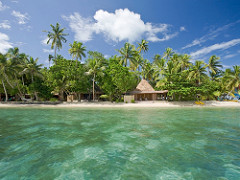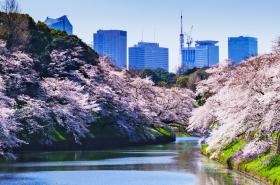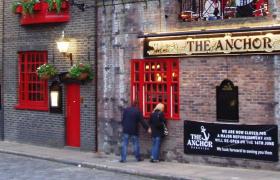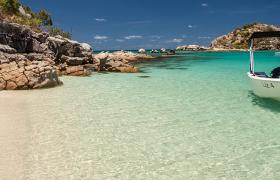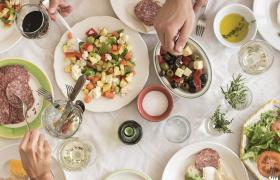While pristine beaches may be Fiji’s most famed calling card, experiencing the islands’ culture is also essential to the ultimate Fijian holiday. Known to be incredibly laid-back and welcoming, Fijian locals still practice many of their traditions and indigenous culture remains a part of everyday life for most of the population. To get a taste for such customs and local life while on your Fijian holiday, we recommend these top five cultural activities.
Sunset in Fiji
Visit a village
Best done by tour, visiting a village is a great way to interact with locals and get a taste for life in Fiji. On any visit locals will welcome you with smiles and open arms, and be very inquisitive and accommodating. Expect to shake a lot of hands and be asked a lot of personal questions. When visiting it is customary to bring a gift of kava and also advisable to dress conservatively as Fijians are modest people. The village’s children will no doubt be the first in line to smile and welcome you also so bringing gifts of toys, pencils and paper for them is recommended.
Enjoy a Lovo
To taste the true flavours of Fiji you’ve got to dig into a Lovo during your stay. Most likely to be served during a village visit or at a cultural night, a Lovo is a traditional Fijian feast that is cooked in an underground earth oven. The meal often involves chicken, fish or pork that is wrapped tightly in banana leaves and palm fronds and placed on the hot stones in the ground. Other traditional ingredients also cooked in the oven include dalo (the root of the taro plant), cassava (the root of the tapioca plant) and wild yam. The Lovo ingredients are then buried in the earth and left to cook for two to three hours depending on the amount of food. The lovo is then often set up as a buffet and served with fresh fruits and other local ingredients.
Take part in a Kava Ceremony
Also referred to as ‘yaqona,’ kava is a drink derived from the roots of the kava crop. Known for its sedative and aesthetic properties, kava is part of the fabric of life in Fiji and often shared and enjoyed during communal aspects such as conflict resolutions, celebrations, ceremonies and special occasions. If invited to take part in a kava ceremony, it is customary to bring some kava as a gift. During the ceremony everyone must sit down and remain seated. The village’s chiefs and executive heads will drink first, followed by men and then women. Generally after the drinking ceremony, festivities of song and dance take place where you will be welcomed to join in.
An island in Fiji
Fire Walking Ceremony
Of all of Fiji’s ceremonies, fire walking would have to be the most intense to witness. According to legend, the ability to perform the ancient ritual was given to the Sawau tribe by god. Traditionally the tribesmen would refrain from having contact with women and eating coconuts before fire walking, a custom that was said to help avoid being badly burned. Today the ceremony is mainly only performed for tourists and involves fire walkers walking in a single file, barefoot across a pit of red-hot stones.
Watch a football game
Watching a game of football is a great way to get a sense for modern-day culture in Fiji. With Rugby Union considered to be the national sport of the country, Fiji’s rugby union matches are incredibly popular, particularly games against fellow Pacific Island teams Samoa and Tonga as part of the Pacific Rugby Cup. International games are held at the country’s National Stadium is located in Suva. To start planning your Fijian getaway call 13 70 71 or you can email us.

